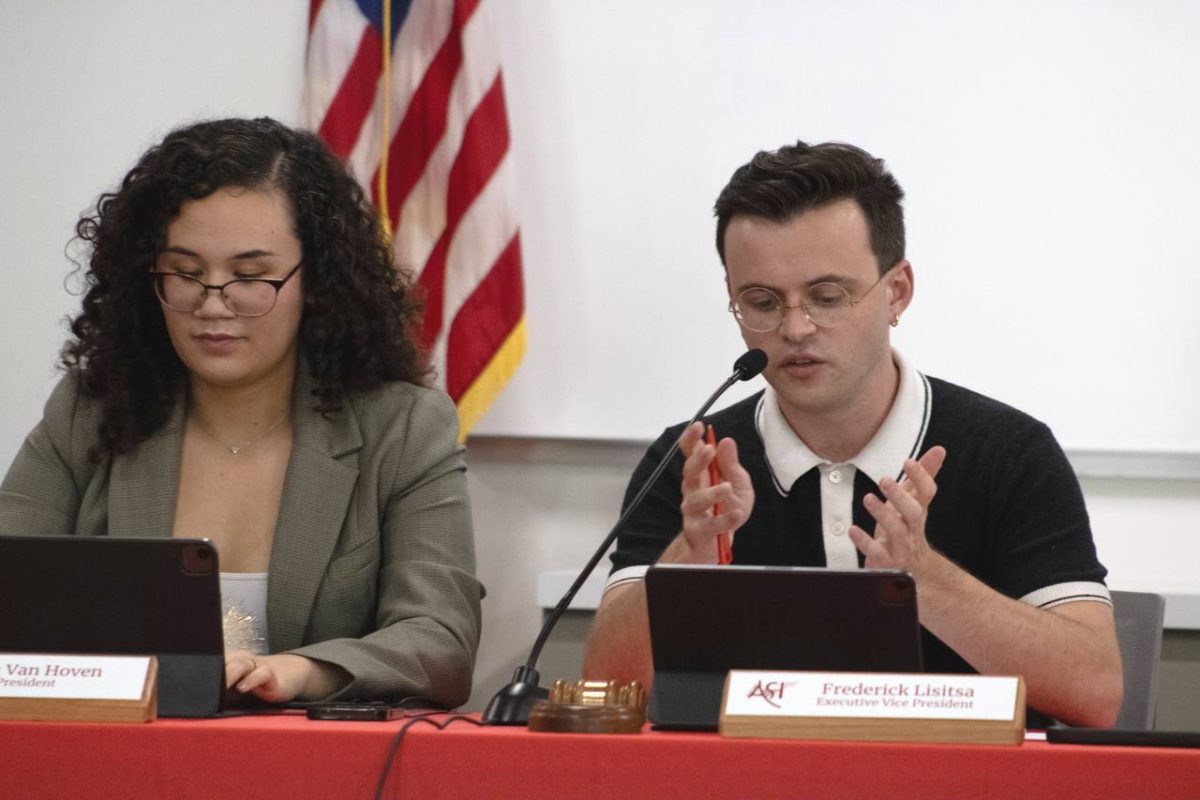In its purest form, opinion writing is about sharing thoughts, beliefs and ideas on a subject, adding a unique perspective to a topic that already interests the audience. In the ideal op-ed, the author infuses their well-informed perspective into a broader conversation, deepening the discussion with their insights, experiences and interpretations.
This sounds like a lofty, intimidating standard. It is easy to think you’re not knowledgeable or eloquent enough to join the intellectual heavyweights. You might be afraid to put your views out there, fearing they could be torn apart by those who know better; somewhere, someone might think you’re wrong and might tell you so in the comments.
The good news is that plenty of people are being paid to offer their opinions on subjects they have no business writing about.
Chris Cillizza is a political commentator who worked for CNN from 2017 to 2022. Previously, he wrote for The Washington Post’s blog The Fix, appeared on Meet the Press and was an MSNBC analyst.
Despite being paid an unfathomable amount of money for his political takes, Cillizza is not good at what he does. He treats politics like a horse race, as Slate journalist David Weigel cleverly documents here, and few readers finish reading one of his pieces feeling they’ve gained any useful insights. In fact, they often come away angry: in 2017, Cloudera Fast Forward Labs analyzed Cillizza’s tweets and found he was one of the most ratioed pundits on X, formerly Twitter. He was pummeled when he opened an Ask Me Anything (AMA) on Reddit, a type of interactive message thread where someone answers questions from an audience.
You can do better than Chris Cillizza. You just need to learn how to reconstruct your thought vomit in a way that everyone can easily disseminate and make it something of actual substance.
Much like in essay writing, every opinion article should start with a clear central idea or thesis that serves as the ‘north star’ for the entire piece. This helps focus your argument, ensuring that you don’t meander and that every point aligns with and supports it. It doesn’t need to be particularly profound or academic either. For instance, if you’re writing about why the sequel to your favorite movie failed to live up to expectations, your thesis might simply be that it relied too much on showing and not enough on telling. From there, every point you make, whether about the plot, characters or pacing should tie back to that central idea.
However, the rest of it is not an exact science and the best angle often varies from piece to piece. The human brain gravitates toward stories, so it’s helpful to frame your article like a narrative of sorts—connecting ideas, weaving in personal insights and guiding the reader through it.
If you’re writing about climate change as a farmer who has witnessed firsthand the effects of drought, you might want to lead with poignant details about how your crops died and how your livelihood has been upended; this approach has a much more visceral, and therefore impactful, effect on the audience than a political analyst spewing statistics.
Take Gabriella Ferrigine’s guest essay “You Wanted to Know Where the Towers Had Gone,“, for example, which draws on a deeply personal story about her mother’s experience of 9/11. This approach beautifully, if not horrifyingly, captures the psychological and emotional trauma of that day. It is a memorable prelude to the piece’s central theme.
There’s an aversion to using “I” in news writing, but in opinion writing, you absolutely can—and sometimes should—put yourself in the piece if the subject matter is deeply personal. Doing so compels readers to connect more intimately with your perspective. After all, opinion articles are all about your point of view. You should never be disconnected from it.
You also shouldn’t be dissuaded from voicing your thoughts just because you don’t have firsthand experience with a particular subject. The argument that “you’ve never done something, so your opinion doesn’t matter” devalues the perspective of an observer’s critique. You don’t need to be a chef to recognize that a meal is poorly cooked; your experience as a diner gives you the authority to critique the dish.
When I was a kid, one of my favorite writers was video game columnist Sean Patrick Reiley, better known as Seanbaby. He wrote a monthly column in Electronic Gaming Monthly, titled “Rest of The Crap,” that introduced gamers to the slime at the very bottom of the retro game barrel.
He wasn’t a video game designer at this stage of his career (he’d go on to make the mobile game Calculords in 2014) but his crude, incisive humor made his critiques stand out from the rest of his more straight-laced colleagues. He wasn’t just funny; he was informative too. It doesn’t take a genius to realize why Atari 2600’s ET, The Extra Terrestrial was bad, but thanks to his willingness to subject himself to the mental torture of playing it and writing about it, I learned that the game was so unbearably terrible that it contributed to the 1983 video game crash, caused the console’s downfall and led to unsold cartridges being buried in a landfill.
There are times when understanding the science and statistics is more crucial than how entertaining your delivery is, especially with complex issues like climate change, public health or economic policy.
Professor Peter Hotez, dean at Baylor College of Medicine and co-director of the Texas Children’s Hospital Center for vVaccine dDevelopment, is a key voice railing against the politicization of science, especially regarding COVID-19 and vaccine misinformation. In a Los Angeles Times article aptly titled “Scientists have become sitting ducks. We need leaders to step up and defend us,”, he highlights how America’s historical dominance in scientific research is being undermined by the rise of anti-science rhetoric, fueled by political agendas within conservative movements.
He is an expert in the field and brought the evidence to back his argument. He’s not just an outsider looking in either: he has also personally been targeted by the right-wing misinformation apparatus.
Engaging with polarizing issues invites backlash, but speaking up provides a more complete and nuanced understanding. It’s not simply about reporting what has happened, but looking beneath the surface to understand how others think and feel.
Some view immigration through the lens of national security, while others focus on the opportunities immigrants bring. By exploring these perspectives, we can challenge our own assumptions and gain insight into how personal experiences and values shape people’s views on the same issue.
Whether you’re sharing something deeply personal, analyzing complex data or riffing on the disappointing finale of your favorite show, making your words stick in your audience’s minds gives you a deceptively profound influence on how they view the subject moving forward too.
Not everyone will agree with you, and you may not reach every reader, but there is value in sparking new thoughts. Even small shifts in perspective can lead to broader conversations and, ultimately, positive change.
If not that, at least you did better than Chris Cillizza.
















